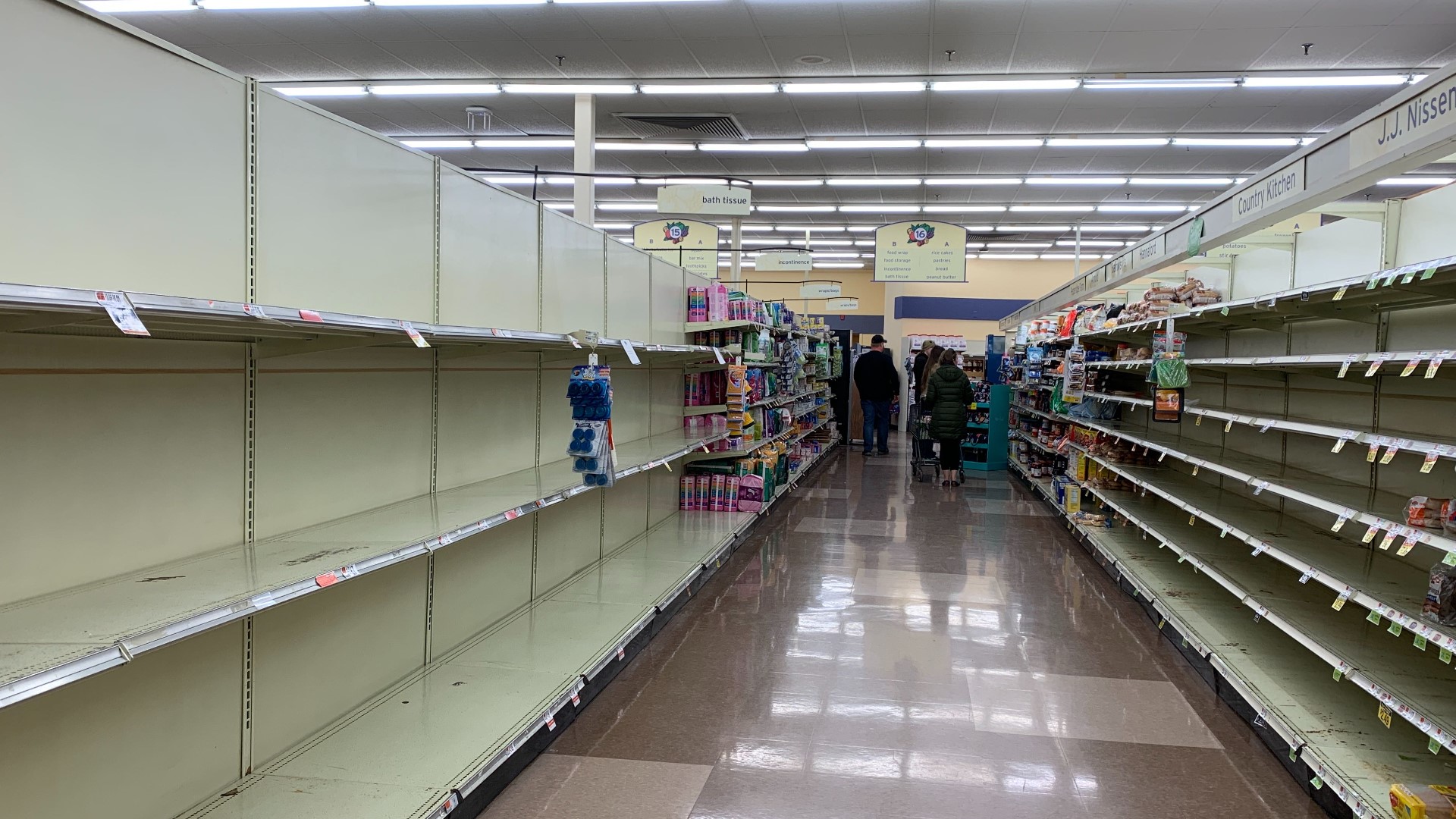Sixty percent -- according to a new study by C+R Research, that's how many American shoppers are afraid to go to grocery stores during the coronavirus pandemic. It's a task that, these days, often involves long lines, high stress, and empty shelves.
This study surveyed 2,012 shoppers to find out how their grocery shopping habits may have changed as a result of COVID-19. It determines that among consumers:
- 88 percent are unable to find certain items they would normally buy
- 73 percent are making fewer physical trips to the grocery store
- 50 percent have witnessed price gouging
- 47 percent have changed their diet or eating habits
- 46 percent are now buying in bulk
Additionally, consumers are now spending more money per week on average, at about $184 per week compared to $159 per week. Stores also seem to be busiest in the morning hours.
The FDA is offering tips to shoppers to try to make their experiences less stressful and safer. While shopping for groceries, you should try to:
- Buy only one to two weeks-worth of groceries at a time. This helps to ensure that you avoid creating temporary shortages.
- Wear a face covering or a mask at the store. Starting Friday, May 1, this will become a new requirement at a lot of public places in Maine. It's designed to protect other people from germs you could have.
- Bring your own wipes to clean the handles of a basket or a cart.
- Practice social distancing. When a section of the store is crowded, it can be difficult to stay six feet away from one another, but try to do so. Avoid touching your face, too.
- Wash your hands with warm water and soap when you get home. You can also wipe down food packages, if you choose to do so -- but the FDA says there is no evidence that COVID-19 is transmitted via food packaging.
Hannaford is also offering tips to consumers to support healthy eating habits while staying at home during the pandemic. Anne L'Heureux is an online dietitian with Hannaford. She recommends following the "Four P's" steps -- buying produce, probiotics (like yogurt, Kefir, and cottage cheese), and plant-based protein; and, above all, planning.
"Start off by going through your pantry and going through your refrigerator -- what do you already have that you could make meals out of? Then, you can go online to the grocery store's weekly flyer and look at what's on sale," L'Heureux told NEWS CENTER Maine via Zoom. "Look where you can save on cost, due to what's on sale; what you already have in your home; and then create a list, so that when you go in, you know you're going up and down the aisles as efficiently as you possibly can."
L'Heureux also recommends looking up recipes beforehand and trying to base those recipes around similar ingredients each week.
"You can just go onto...Google and type in -- I usually use the words, 'easy', 'healthy', followed by whatever ingredient I want to make a recipe for," L'Heureux explained.
Try to remember to 'eat the rainbow' every day, even if those foods are frozen or canned. They still provide the same nutrition -- just rinse the extra sodium off of canned fruits or vegetables.

